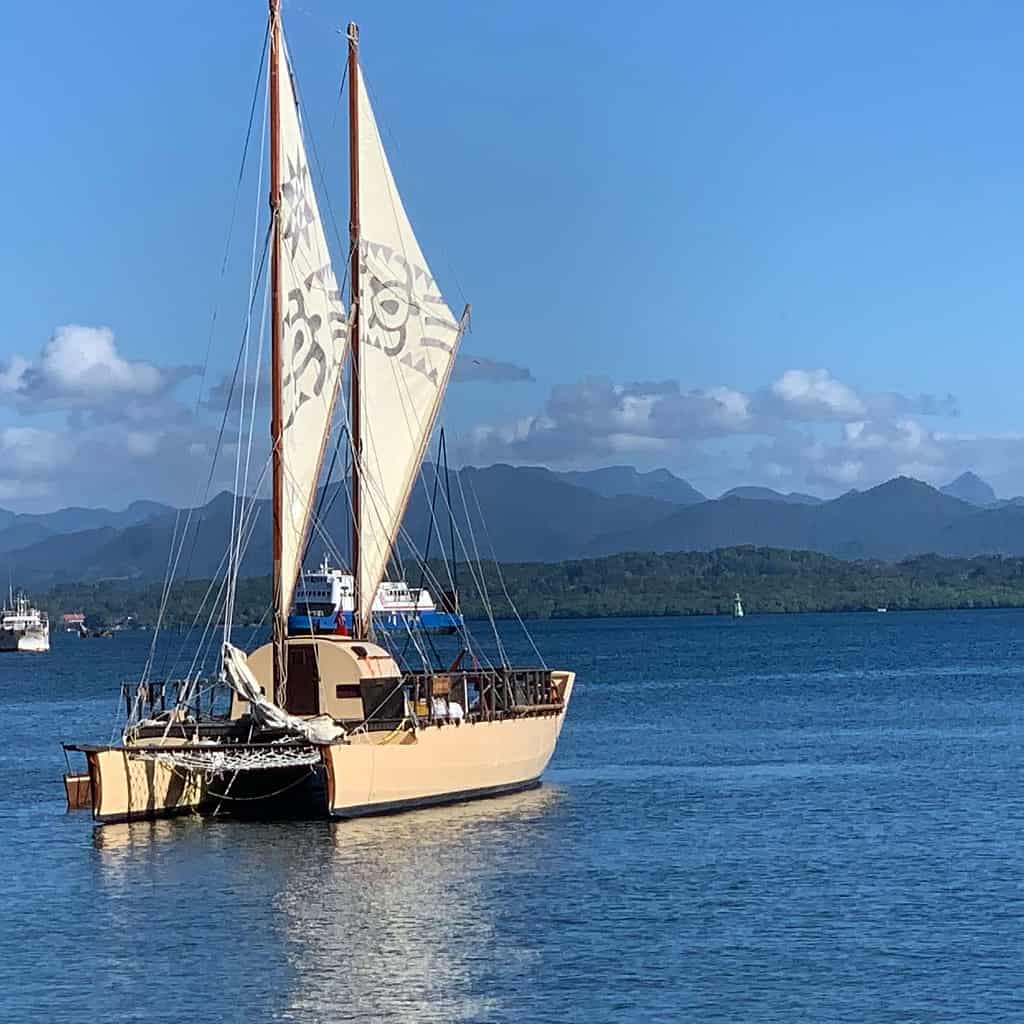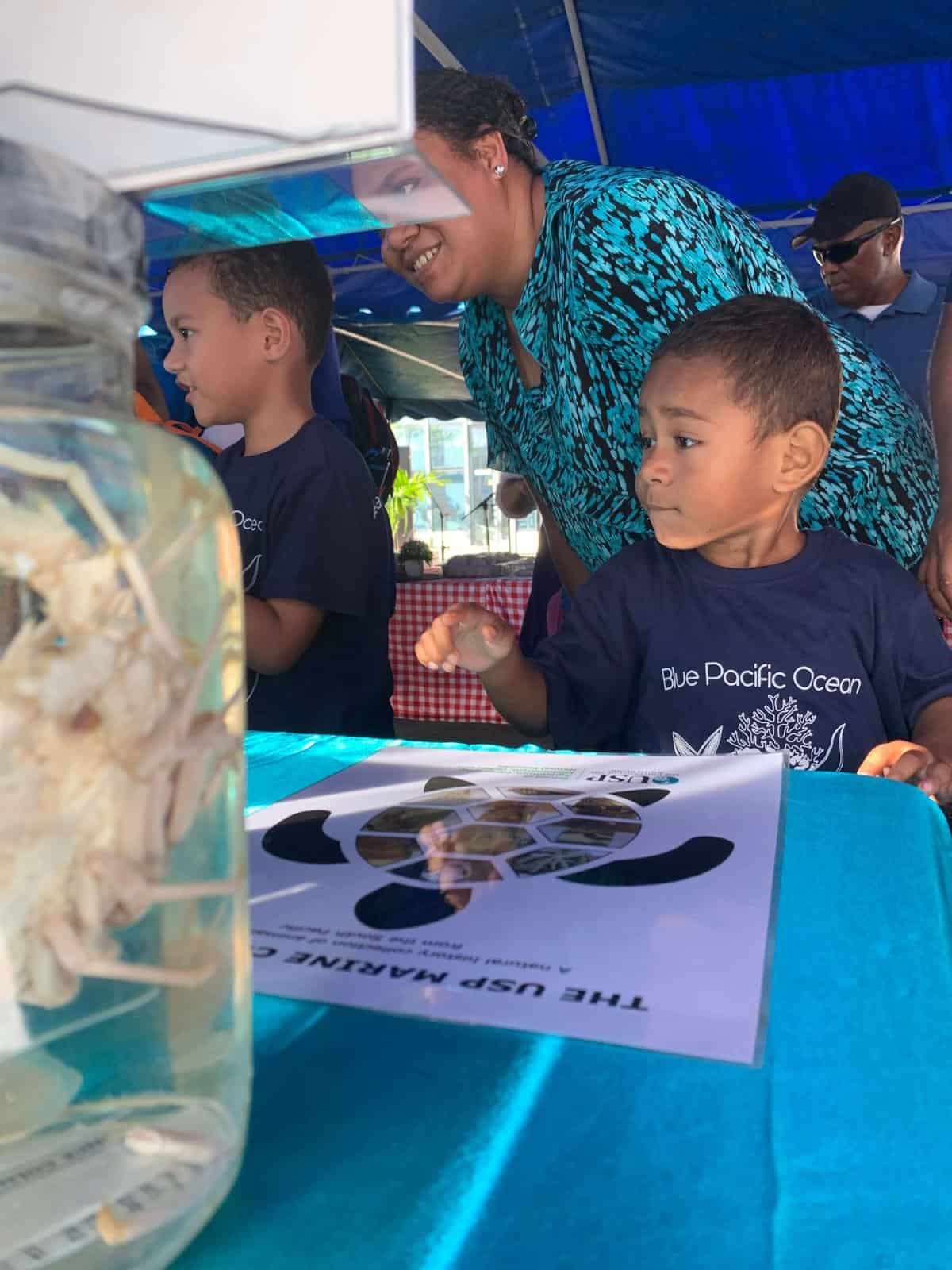World Oceans Day saw a flurry of activity in Fiji’s capital, Suva, as people gathered to celebrate the ocean as an integral part of their lives.
It coincided with a two-day Pacific Oceans Alliance meeting that brought together various stakeholders to prepare for the upcoming World Oceans Conference in Lisbon.
Addressing the POA meeting, the Pacific Oceans Commissioner, Henry Puna, spoke passionately about the importance of the ocean to the region and the role that the 2050 Strategy for the Blue Pacific Continent plays. This strategy, which will go before Pacific Islands Forum leaders when they meet in Fiji next month, lays out how PIF member states will work together to achieve a vision for a ‘resilient Pacific Region of peace, harmony, security, social inclusion, and prosperity that ensures all Pacific people can lead free, healthy, and productive lives.’
Puna said: “We have the healthiest tuna stock in the world, so our fishing resources are important. We need to also include science-based approaches to further enrich our cultural and indigenous knowledge.”
“The ocean is the key priority for the 2050 strategy. Leaders identify the protection and health of our ocean and the sustainability of our islands and ocean resources as cornerstone priorities for the 2050 strategy,” he said.
The Director General of SPREP, Sefanaia Nawadra, spoke of the importance of coordination and collaboration. “There’s a need to strengthen coordination, the need to bring back the marine working group or CROP working group. In those meetings, it allows us to be comfortable working with each other and share data,” he said.
The idea of improving collaboration amongst the region’s agencies was supported by other stakeholders like the Pacific Community (SPC).
The Deputy Director for the Oceans and Maritime Programme of the Pacific Community (SPC), Jens Kruger, said: “We have the opportunity to look at a decade of ocean science as the plan to operationalise the implementation of SDG14 [Life Below Water] and it would have made it easier if we had an existing working group to work from.”
During his presentation at the Pacific Oceans Alliance meeting, he says, “There is a vacuum. To be able to write-up this integrated ocean management program, it would be a lot easier if we had an existing marine sector group operating.”

The role of science and indigenous knowledge was also a point of discussion at the Alliance meeting, as was the importance of involving grass-root communities as part of the conversation.
Kruger says, “Culture is about traditional knowledge and we recognise it as being complimentary to science. That is one of the things we want to take to Lisbon.”
WWF’s Senior Policy and Government Affairs Manager, Alfred Ralifo, highlighted the importance of including communities at the grassroot level. “Most of the world’s key biodiversity areas fall within the grass-root community territories or close by to them, and these are areas which grass-root communities rely on for their food security and livelihoods,” he said.
At the Suva World Oceans Day celebrations, the chairwoman of the local community of Serua Island, Adi Kolokesa Latianara, from the province of Serua in Fiji, talked of the vital role the ocean plays in their lives. “Today I share my experience as a custodian of the ocean. With climate change effects intensifying and causing more bleaching, our oceans and its resources have been greatly affected.”
“Life is getting harder as our marine resources are declining and we are catching fewer fish with sizes also decreasing,” Latianara said.
The UN Oceans Conference 2022 will be held in Lisbon, Portugal June 27- July 1. A large Pacific delegation is expected to attend the event.
